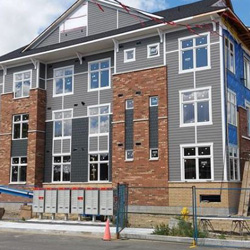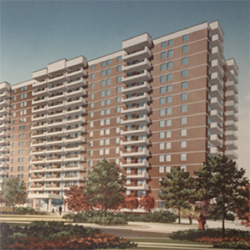Once a condominium corporation agrees to a no-smoking policy by either changing the clause or introducing a by-law or policy, the corporation has a duty to enforce it.
Enforcement will be a challenge if a resident denies they are smoking in his or her unit. In this case, the board must gather as much evidence as possible regarding the presence of second-hand smoke and its impact on other residents.
Enforcement procedures
Section 119 of the Condominium Act, 1998 states that the corporation, the directors, officers, and employees of the corporation, a declarant, the lessor of a leasehold condo corporation, an owner, an occupier of a unit and a person having an obligation against a unit and its relevant common interest shall comply with the Act, the declaration, the by-laws and rules.
Owners are required to take all reasonable steps to ensure that unit occupiers (i.e. tenants, guests, invitees, agents and employees) comply with the Act, clause, by-laws and policies.
If a no-smoking policy is violated, a condominium corporation must stand by its by-laws regarding enforcement of the clause, by-laws or policies. The board of directors should provide the owner with a notice of the complaint(s) in writing, including the details of the complaint(s), such as dates and times. If the complaint is against a tenant of a unit owner, the notice of complaint will be delivered to the unit owner.
The board should give the owner or tenant an opportunity to answer each complaint, including an offer of a hearing before the board if requested.
Handling disputes
If there is a difference between a condominium corporation and a unit owner over an alleged no-smoking policy breach, Section 132 (4) of the Condominium Act, 1998 provides: “Every declaration shall be deemed to contain a provision that the corporation and the owners agree to submit a disagreement between the parties with respect to the declaration, bylaws or rules to mediation and arbitration in accordance with clauses 1(a) and (b) respectively.”
The duty of the mediator is to “endeavour to obtain a settlement with respect to the disagreement…” (section 132 (5)) and if a settlement is not possible the matter will be sent to binding arbitration pursuant to the Arbitration Act, 1991 (section 132 (1) (b)). An arbitrator’s decision will be enforced by the courts if it is not complied with by the parties.
Furthermore, “an owner, an occupier of a proposed unit, a corporation, a declarant… of a unit may make an application to the Superior Court of Justice for an order enforcing compliance with any provision of the Act, the declaration, the bylaws, the rules…” (section 134 (1)). Section 134 (2) provides that “if the mediation and arbitration processes described in section 132 are available, a person is not entitled to apply for an order under subsection (1) until the person has failed to obtain compliance through using those processes.”
Section 134 (3) of the Act provides: On a request, the court may, subject to subsection (4),
- Grant the order applied for;
- Require the persons named in the order to pay:
- the damages suffered by the applicant because of non-compliance, and
- the costs incurred by the applicant in locating the order, or
- Grant such other relief as is fair and equitable in the circumstances.
Section 134 (4) provides: The court shall not, under subsection (3), grant an order terminating a lease of a unit for residential purposes unless the court is satisfied that:
- The lessee is in contravention of an order that has been made under subsection (3); or
- The lessee has received a notice described in subsection 87 (1) and has not paid the amount required by that subsection (defaulted on payment of common expenses).






